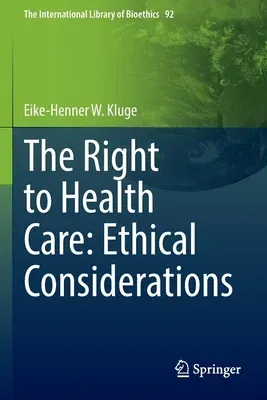Eike-Henner W Kluge
(Author)The Right to Health Care: Ethical Considerations (2022)Paperback - 2022, 15 January 2023

Qty
1
Turbo
Ships in 2 - 3 days
In Stock
Free Delivery
Cash on Delivery
15 Days
Free Returns
Secure Checkout

Part of Series
The International Library of Bioethics
Print Length
237 pages
Language
English
Publisher
Springer
Date Published
15 Jan 2023
ISBN-10
3030938409
ISBN-13
9783030938406
Description
Product Details
Author:
Book Edition:
2022
Book Format:
Paperback
Country of Origin:
NL
Date Published:
15 January 2023
Dimensions:
23.39 x
15.6 x
1.35 cm
ISBN-10:
3030938409
ISBN-13:
9783030938406
Language:
English
Location:
Cham
Pages:
237
Publisher:
Weight:
358.34 gm